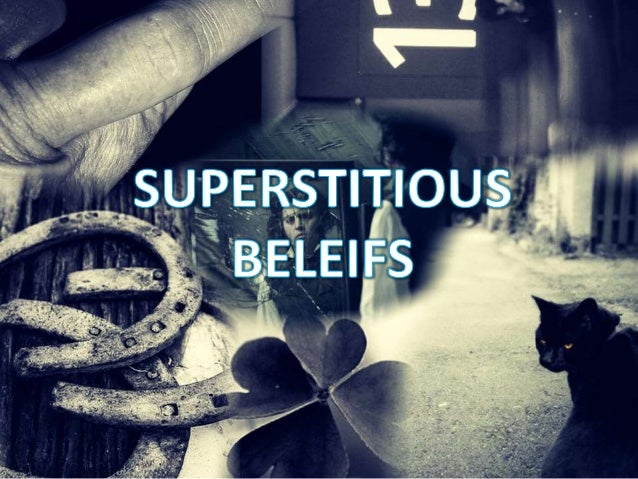 |
| "The Three Crosses," by Rembrandt |
Sometime on the Friday after Passover, almost 2,000 years ago, Roman soldiers, acting on orders of Pontius Pilate, prefect of Judea, took Jesus of Nazareth to a low hill outside Jerusalem and crucified him to death. As crucifixion deaths went, Jesus' death came pretty quickly, within a few hours. It was not unusual for victims to linger on the cross for days.
There were two criminals also crucified alongside Jesus. Because it was Passover week, emotions ran high among the Jews who had made pilgrimage to Jerusalem for the holy observances. There were many thousands of pilgrims there, some historians say more than 100,000. At sunset on Fridays the Jewish Sabbath began then as now, and even hardened Roman soldiers were uneasy about the execution of these men continuing when the Sabbath began during this particular week. So they decided to break the victims' legs in order to make quick their suffocation to death. Crucifixion is, after all, a form of hanging, killing by suffocation. With their legs broken, the victims could not push up to take a breath and so would die a quick, though brutal death ("excruciating" derives from the same root as "crucifixion," and it is no accidental relationship).
But when they came to Jesus to break his legs, they discovered he had already died. Another soldier, probably more experienced and thus leaving nothing to chance, took his long spear and plunged it into Jesus' side, almost certainly penetrating his heart, since that would have been the whole point of spearing him to begin with.
Before sundown, the Romans permitted some of Jesus' friends to retrieve his body and entomb it.
One of the vexing problems about Jesus' execution is that we really don't know exactly why Jesus was crucified. Of course, we know why the Romans crucified people - political offense against the empire - but just what Jesus did, or was accused of doing, relating to that is not fully clear. Even stipulating that the Jewish high council, the Sanhedrin, wanted to be quit of Jesus, they could have ordered him stoned to death for
religious offenses without getting the Romans involved. The Gospels are clear enough that religious charges against Jesus not only could easily be made, they were made.
 |
| "Ecce homo" - Behold, the man. |
Pilate, we know from Roman historians, was a weak man, inclined to violence to solve his problems, and was unskilled as a procurator. In fact, most modern historians have concluded that Judea had the singular misfortune among Roman provinces to suffer uncharacteristically inept Roman governance for several decades, including those on both ends of Jesus' life.
Certainly, Pilate thought almost nothing of crucifying Jews; during Jesus' own lifetime Pilate had sentenced hundreds, probably thousands, of Jews to the cross and had killed numberless more by other means. So one more was not even a statistic. (Jesus himself spoke of a time when Pilate had sent his cavalry, swords swinging, into a group of men making sacrifices, killing the lot of them, for reasons not related. Pilate seems to have been extremely paranoid about crowds of Jews who gathered for any reason.)
There are no notes from the trial of Jesus before Pilate. The accounts of the Gospels were written down many years later, decades, in fact. Even so, some historical facts are not disputed. The Sunday before Passover, about 33 AD, Jesus and his disciples arrived in Jerusalem. The crowd that greeted them joyfully soon dissipated. Jerusalem was packed with Jewish pilgrims in the city to celebrate Passover. Having been under Roman (hence pagan) occupation for many decades, and the pagan Greeks before that, the Jews' nationalistic fervor ran high during the holy season, so high, in fact, that Pilate abandoned his offices in Caesarea, seventy-five miles northwest, to come to Jerusalem along with a couple of thousand soldiers.
Pilate was a very violent ruler. He had little compunction about sentencing people to death. Many hundreds of Jews, if not more, had already died by his command. The first-century Jewish historian Philo wrote that Pilate was not much worried about niceties of the law such as a proper trial for the accused.
The level of collusion between the Jewish high council (the Sanhedrin) and Pilate is unclear. It was mediated by the high priest, Caiaphas, in any event. All four Gospels present Jesus as being hauled before the Caiaphas at his house and three say that there were other Jewish leaders present; Luke calls them "the elders of the people, both the chief priests and teachers of the law." Whomever they were, they are only presented as an echo board for Caiaphas.
What did Caiaphas have against Jesus? The synoptic Gospels indicate that Caiaphas's charge against Jesus was blasphemy. Matthew 26 records that after he was arrested and was brought before Caiaphas,
… the high priest said to him, "I put you under oath before the living God, tell us if you are the Messiah, the Son of God."
Jesus said to him, "You have said so. But I tell you, From now on you will see the Son of Man seated at the right hand of Power and coming on the clouds of heaven."
Then the high priest tore his clothes and said, "He has blasphemed! Why do we still need witnesses? You have now heard his blasphemy. What is your verdict?"
They answered, "He deserves death."
I think the Gospel of John's explanation, which differs from the others', gives important insights to the dynamics of Caiaphas's relationship with Pilate, showing that the high priest was primarily concerned with preserving the lives of the people. John presents a more nuanced case of Caiaphas against Jesus that makes Caiaphas more concerned with politics with Pilate than internal affairs of religion. Chapter 11 records that Caiaphas was deeply fearful of Pilate's propensity to violence, so much that Caiaphas was willing to plot Jesus's death in order to prevent Pilate from slaughtering the crowds who followed Jesus and then turning his soldiers loose to ravage the country itself.
There was Roman precedent for this. A few years after Jesus was born, a would-be revolutionary named Judas the Galilean led a rebellion against Rome centered in the city of Tzippori (Sepphoris) in Galilee. This was before Pilate became prefect, but the Roman response was crushing. According to Tacitus, the Roman Syrian governor sent two legions who laid waste to the entire city, crucified up to 2,000 men and sold the rebels' families into slavery. The shock of this savagery would have been vivid in Caiaphas's mind. It was the sort of thing, or worse, that he reasonably feared Pilate would render to Judea if Jesus continued unchecked.
The crowds Jesus drew were particularly worrisome because they signified that Jesus was gaining a growing following. There were royal politics involved here. The last king of the Jews had been Herod the Great, who had died in 1 BC. He was never accepted by the Judeans as a proper king because there was question of whether he actually was Jewish at all. Herod the Great’s throne was at the time vacant – when he had died in 1 BC, his territory was divided by the Romans into four parts, each ruled by a different descendant. What if, with the masses supporting him, Jesus attempted to claim the throne of David, to which he was by descent from David entitled? A power play by Jesus for the throne would have been brutally extinguished by the Romans.
To both the Jewish leaders and the Romans, a Jew with messianic intentions was foremost a political figure and in the minds of many Jews (and certainly Pilate), a potential military leader as well. That Jesus had said and done nothing to demonstrate such intentions would have been of no comfort to Caiaphas; as we say today, absence of evidence is not evidence of absence. After all, what insurrectionist or revolutionary announces his goals before acting on them?
On Thursday evening of what would become known as Holy Week, Judas Iscariot, one of the disciples, traitorously brought the Temple police to Gethsemane, just outside Jerusalem. They arrested Jesus and bound him. Jesus’ disciples fled, leaving Jesus isolated.
The simplest narrative of events from then on is John's. Jesus was taken to the home of Annas, a former high priest, also Caiaphas’ father-in-law. Whereas in the synoptic gospels Jesus appears before a council of some kind and is found guilty of blasphemy at a drumhead court, in John no such council is present nor is there any sort of trial. Jesus, remaining bound, speaks only to Annas, who instead of pronouncing him guilty of some crime, "questioned Jesus about his disciples and his teaching." Jesus doesn't play along. An official present struck him on the face for responding insolently to the high priest.
Annas dispatches Jesus to Caiaphas, who quickly sends Jesus to Pilate. John 18 records,
Pilate came out to them and asked, “What charges are you bringing against this man?”
“If he were not a criminal,” they replied, “we would not have handed him over to you.”
Pilate said, “Take him yourselves and judge him by your own law.”
“But we have no right to execute anyone,” they objected.
Pilate’s response strikes me as entirely reasonable. Here is a Jewish man, Jesus, charged with – what? Well, he’s a criminal. Pilate sees no Roman interest here so he tells the Jewish leaders, you can take care of that yourself. They protest that they have no right to execute anyone.
But of course, they do have that right – for capital offenses under
Jewish law. Their response to Pilate reveals to him that they are claiming Jesus is an offender against the imperium, for which only Pilate could adjudge death.
Pilate was personally despicable but that doesn’t mean he was stupid. Any Roman prefect would have relied on an extensive network of Jewish informers, probably paid, and his own Roman soldiers and officials to stay apprised of developments and rumors among the ruled. Pilate would have not been caught flat-footed when Jesus was brought to him. He would likely have known that the crowds hailed Jesus as a messiah, or deliverer, when Jesus entered the city on Palm Sunday, but deliverer from what? In Pilate’s mind, it could only be delivery from Roman rule.
(Jesus even knew that such suspicions were harbored against him. In Mark 14, when Jesus is arrested, he demands directly, "Am I leading a rebellion that you have come out with swords and clubs to capture me?")
Pilate would have known long before this day that Jesus was a celebrated teacher and preacher, reportedly a miracle worker, who was drawing ever-increasing crowds. So he got straight to the point and asked Jesus directly: “Are you the king of the Jews?” The dialog in John 18 is succinct:
“Is that your own idea,” Jesus asked, “or did others talk to you about me?”
“Am I a Jew?” Pilate replied. “Your own people and chief priests handed you over to me. What is it you have done?”
Jesus said, “My kingdom is not of this world. If it were, my servants would fight to prevent my arrest by the Jewish leaders. But now my kingdom is from another place.”
“You are a king, then!” said Pilate.
Jesus answered, “You say that I am a king. In fact, the reason I was born and came into the world is to testify to the truth. Everyone on the side of truth listens to me.”
“What is truth?” retorted Pilate. With this he went out again to the Jews gathered there and said, “I find no basis for a charge against him.”
Luke’s Gospel is more specific about the charges related to Pilate by Jesus’ Jewish captors, who tell Pilate, “We have found this man subverting our nation. He opposes payment of taxes to Caesar and claims to be Messiah, a king.” This does explain why Pilate asked Jesus whether he was a king. As for Jesus opposing paying taxes, it was (a) false and (b) even if true would not have exactly set him apart from 95 percent of all the Jews in the country. “Subverting the nation”? That’s nothing but Luke’s equivalent of their claim in John that Jesus was simply a criminal.
In any event, Pilate is unpersuaded but attempts to placate the accusers by having Jesus scourged. But Caiaphas and his allies want death. All four Gospels agree that Pilate attempts to grant Jesus amnesty by releasing a cutthroat insurrectionist named Barabbas to the hand-picked crowd Caiaphas has brought to the scene, “But the chief priests stirred up the crowd to have Pilate release Barabbas instead,” reports Matthew.
Finally, Pilate caves and order Jesus crucified. But why?
For someone whom Caiaphas feared would decimate the whole country because of Jesus, Pilate seems awfully peaceable when he had the chance to get rid of Jesus. He had to be cajoled, even threatened, into it. In John, the Jews present tell Pilate that to release Jesus would be the same as opposing Caesar – actually accusing Pilate of incipient treason!
But Pilate might have been trying all along to shift the blame for Jesus's execution from himself onto the Jewish leadership. It was Passover week, remember, when Jewish religious-nationalist passions ran high. Passover was the Jewish celebration and commemoration of their liberation from chattel slavery in Egypt, and here they Jews were in their own ancient homeland, under foreign occupation and rule.
Pilate himself had personal experience with such passions. Unlike previous prefects, Pilate ordered the imperial standards into Jerusalem with the symbols and images of Caesar Tiberius and had them planted on the Temple Mount. The Jews naturally saw this as a direct affront to the Second Commandment (Exodus chapter 20), which was,
You shall not make for yourself an idol, whether in the form of anything that is in heaven above, or that is on the earth beneath, or that is in the water under the earth. You shall not bow down to them or worship them … .”
Being ruled by Caesar was bad enough, but for images, or idols, of Caesar (whom the Romans claimed was divine) was intolerable, period. A crowd of angry Jews gathered in Caesarea, where Pilate lived and did most of his work, to deman removal, which Pilate refused. After five days, he ordered his soldiers to surround the demonstrators and told them he would have them all slain if they did not disperse. The Jews replied they would rather die than submit to the desecration of the holy city. Finally, Pilate had the images removed.
Later, Pilate had gold-plated shields set up in Herod’s palace in Jerusalem, though not with graven images. Again the Jews protested and when Pilate refused to relent, they sent a letter of protest to Tiberius. Tiberius sent a letter to Pilate, rebuking him harshly for such offenses and violations of precedent, and ordering the shields' prompt removal to Caesarea.
On the day Jesus was brought to him, Pilate may have thought his standing with Tiberius was shaky. Jesus still had devotees, perhaps thousands, who were unaware that he had been arrested overnight. Might they riot in protest? It was a real danger, as Matthew explicitly records the chief priests realized; it was the reason they decided not to snatch Jesus during the daytime.
If a riot there might be, Pilate might have thought, best to preemptively divert its rage away from the Romans and onto Caiaphas and company. Pilate would not be able to sit it out but reporting to Rome that the people were rebelling against their own religious authorities, not Pilate, was infinitely better than the other way around.
But while Pilate was trying to play Caiaphas, the high priest, knowing well Jesus's popularity among the masses (as well as his allies among some members of the Sanhedrin, Nicodemus, for example) may well have been trying to set up Pilate to take the heat for him, also. Both men probably wanted to put the monkey on the other's back. This would help explain why Caiaphas gave Jesus such a cursory hearing before trundling him over to Pilate and the resistance to executing Jesus that Pilate gave right back to Caiaphas.
Caiaphas finally played his trump card. Caesar Tiberius was one of the greatest generals Rome ever produced, which, with family connections, led him to become Caesar in AD 14. But he had checked out of affairs of state in 26, moving to isle of Capri. He had left state affairs to Praetorian Prefect Lucius Sejanus. It was Sejanus who had appointed Pilate to his prefecture.
In 31, Tiberius learned that Sejanus was actively plotting to depose (meaning kill) Tiberius and seize the emperorship himself. Tiberius ordered Sejanus executed and began executing Sejanus' partners and political appointees, starting with the most recent appointees and working down to the earlier. Pilate owed his office to Sejanus but escaped the purge probably because his appointment was made very early in Sejanus' rule, long before Sejanus had turned traitor.
Even so, Pilate must have known that his own political, and perhaps physical survival depended on demonstrated devotion to Tiberius. This was Pilate's political Achilles' Heel and it was there that Caiaphas aimed a nearly-explicit threat: if you free Jesus we will report to Rome that you failed to defend Caesar against an insurrectionist, a pretender to the still-vacant throne of Herod the Great, who was a Roman vassal we did not recognize as legitimate in the first place, but matters not, for, "We have no king but Caesar," Pilate. How about you?
It is a grievous error to blame "the Jews" categorically for Jesus's death, but there is no way to get around Caiaphas's deep involvement. Pilate finally yielded to Caiaphas’s political machinations and attempted to announce that the whole sordid affair really had nothing to do with him or Rome (“he took some water and washed his hands before the crowd, saying, ‘I am innocent of this man’s blood’ …” – Matthew 27.24).
He sent Jesus to be crucified and, over Caiaphas’ protest, ordered a sign affixed to Jesus's cross identifying him as "King of the Jews," a sign probably intended to implicate Caiaphas directly in Jesus's death, for whom else could have made such a charge?
Despite their antagonism, both Caiaphas and Pilate came to see that executing Jesus was win-win for them. By giving up Jesus to Pilate, Caiaphas would prevent the Jesus movement from getting out of hand before it was too late to prevent the unspeakable horror of Pilate's superior in Syria from sending a legion or two to teach Judea to stop raising up such troublesome sons. Jesus himself had showed he would not yield in his demands of religious and social reformation. When Caiaphas brought Jesus to his house Thursday night, Jesus swatted away any potential compromise with finality. Faced with such intransigence, Caiaphas handed Jesus over to Pilate and made sure that Pilate never gave him back.
As for Pilate, his win would be twofold:
1.
Stop an incipient Jesus-centered political movement cold by the very simple, effective expedient of killing Jesus. After all, he could not continue to send taxes and goods to Rome by destroying the country that produced them.
2.
His loyalty to the vengeful Tiberius would not be challenged.
Jesus, it seems, had become too threatening to be allowed to live. Both Caiaphas and Pilate had the motive and the opportunity that week to stop him but only Pilate had the means to stop him permanently. There was a meeting of minds between Caiaphas and Pilate, antagonists though they were, and Jesus got caught in the middle.
But here's the kicker: Jesus cooperated with what they had planned for him because he understood that his own fate was inextricably linked to the collusion between them. That Jesus could have effectively defended himself seems of little doubt; there are many clues in the Gospels of what he might have said. But instead, he let himself be found guilty because he knew that Golgotha was the reason he was there. And so, he carried a cross to Golgotha and the world has never been the same.
_________________________
My homiletics professor once said that one thing the Easter story proves is that sin, and the will to sin, is more deeply rooted in human beings than we really can imagine. Roman justice, he pointed out, was the best system of justice the world had ever seen until then; after all, it still forms the basis for most Western jurisprudence today. And among the lands and peoples of the empire, he said, the Jews were enormously respected for their religion, which was considered ancient even way back then. In the case of Jesus (his point being), the best justice and the best religion somehow, and not altogether clearly how, came together to cause the execution of a man entirely innocent of every capital charge brought against him - and for the best of putative reasons. "Even the best we can do has no promise of freedom from sin."
So Joseph of Arimathea and the women disciples of Jesus (the men having gone into hiding) took Jesus' corpse and began to prepare it for burial in Joseph's own tomb. They did not finish the job because of the beginning of the Sabbath, a day on which they could do no work. They laid the body in the tomb, had it sealed, and left. The women agreed to return on Sunday morning to finish anointing Jesus' body, that being the first daylight hours after the end of the Sabbath at sundown Saturday.
The sun set and mercifully brought an end to execution day.





























